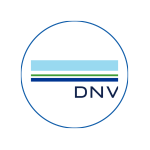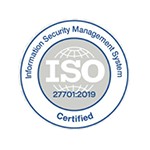What Does a Marine Company Manager Do?
What Does a Marine Company Manager Do?
As the name suggests, a marine company manager is responsible for overseeing and managing the operations of a maritime company. This includes managing employees, overseeing finances, and ensuring that the company's goals and objectives are met. In this article, we will explore the role of a marine company manager in more detail.
Managing Employees
One of the primary responsibilities of a marine company manager is managing employees. This includes recruiting and hiring new employees, training them, and ensuring that they have the necessary skills and knowledge to perform their job effectively. Additionally, marine company managers must monitor employee performance and provide feedback to help them improve.
Overseeing Finances
Another critical aspect of a marine company manager's job is overseeing finances. This includes creating and managing budgets, monitoring expenses, and ensuring that the company remains financially stable. Marine company managers must also make strategic financial decisions to ensure that the company continues to grow and succeed.
As a marine company manager, incorporating NOZZLE's software into your operations can significantly streamline your daily tasks and enhance overall efficiency. Our software offers a range of features designed specifically to address the unique needs of the maritime industry, making your job easier and more efficient.
With NOZZLE's software, you can effectively manage and monitor all aspects of your marine operations from a centralized platform. From vessel maintenance and crew management to procurement and inventory control, our software provides a comprehensive solution that simplifies complex processes.
By automating and digitizing key tasks, our software eliminates time-consuming manual processes, reducing the risk of errors and allowing you to focus on strategic decision-making. It enables you to easily track and analyze critical data, such as vessel performance, fuel consumption, and compliance with industry regulations, providing you with actionable insights to optimize your operations.
Additionally, our procurement software ensures seamless communication and collaboration between suppliers and your team, eliminating the need for lengthy email exchanges. You can bypass traditional communication channels and instantly receive accurate price quotes and information, saving valuable time and accelerating the procurement process.
Incorporating NOZZLE's software into your marine company operations empowers you to streamline workflows, increase productivity, and ultimately drive profitability. Experience the transformative power of our software and take your marine operations to new heights. Contact us today to learn more about how NOZZLE can revolutionize your business.
Best Assistance For Marine Company Managers
+90 850 520 0259
Ensuring Company Goals are Met
Finally, a marine company manager must ensure that the company's goals and objectives are met. This involves setting goals and targets, monitoring progress, and making adjustments as necessary. Additionally, marine company managers must ensure that the company complies with all regulations and standards in the industry.
In conclusion, the role of a marine company manager is diverse and challenging. From managing employees to overseeing finances and ensuring that company goals are met, this position requires a wide range of skills and expertise. If you're interested in pursuing a career in the marine industry, a position as a marine company manager may be worth considering.
Essential Skills For A Successful Marine Company Manager
Being a marine company manager is a challenging and demanding job that requires a wide range of skills and expertise. In this article, we will explore some of the essential skills that are required to be a successful marine company manager.
Leadership and Communication Skills
Leadership and communication skills are crucial for any successful manager, and marine company managers are no exception. Effective communication is necessary to ensure that everyone in the organization is on the same page, and leaders can inspire and motivate their teams to achieve their goals. It is vital for a marine company manager to be able to communicate clearly and effectively with employees, customers, and stakeholders.
Financial Management Skills
Marine company managers must have a thorough understanding of financial management to oversee the company's finances effectively. They must be able to create and manage budgets, monitor expenses, and make strategic financial decisions to ensure that the company remains financially stable. A marine company manager must be able to analyze financial data to identify trends and make informed decisions.
Industry Knowledge
A successful marine company manager must have in-depth knowledge of the maritime industry. This includes understanding industry regulations and standards, current market trends, and emerging technologies. Marine company managers must stay up-to-date with industry news and trends to make informed decisions and stay ahead of the competition.
Problem-Solving and Decision-Making Skills
Marine company managers must have strong problem-solving and decision-making skills to navigate the challenges that arise in the industry. They must be able to identify problems, analyze data, and make informed decisions to resolve issues quickly and effectively.
Adaptability and Flexibility
The marine industry is constantly evolving, and marine company managers must be adaptable and flexible to succeed. They must be able to adjust to changes in the industry and make strategic decisions to ensure that the company remains competitive.
In conclusion, being a successful marine company manager requires a unique set of skills and expertise. Effective communication, financial management, industry knowledge, problem-solving, decision-making, adaptability, and flexibility are all essential skills that are necessary to succeed in this role. By developing these skills, a marine company manager can lead their team to success and ensure that the company remains competitive in the industry.
Challenges Faced By Marine Company Managers
Managing a marine company is a challenging and demanding job that comes with its unique set of challenges. In this article, we will explore some of the top challenges faced by marine company managers.
Regulatory Compliance
Marine companies must comply with a wide range of regulations and standards, and marine company managers must ensure that their organization adheres to these regulations. Failure to comply with these regulations can result in legal and financial consequences, making regulatory compliance a top priority for marine company managers.
Rising Costs
Running a marine company can be expensive, with costs ranging from fuel and maintenance to salaries and equipment. Marine company managers must carefully manage these costs to ensure that the company remains financially stable.
Emerging Technologies
The marine industry is constantly evolving, with new technologies emerging regularly. Marine company managers must stay up-to-date with these technologies and decide which ones to adopt to keep their company competitive.
Environmental Concerns
Environmental concerns are becoming increasingly important in the marine industry, and marine company managers must ensure that their company operates in an environmentally friendly and sustainable way. This includes reducing emissions, reducing waste, and minimizing the impact of operations on the environment.
Talent Management
Finding and retaining skilled and experienced employees can be challenging in the marine industry. Marine company managers must develop effective recruitment and retention strategies to attract and retain top talent.
Global Competition
The marine industry is global, and companies must compete with organizations from around the world. Marine company managers must develop strategies to stay competitive and ensure that their company stands out in the market.
In conclusion, being a marine company manager is a challenging job that comes with a unique set of challenges. Regulatory compliance, rising costs, emerging technologies, environmental concerns, talent management, and global competition are just a few of the challenges that marine company managers must navigate. Marine company managers can lead their organizations to success by developing effective strategies to address these challenges.
Advancements in Technology in The Marine Industry
The marine industry is constantly evolving, and advancements in technology have played a significant role in shaping its development. This article will explore some of the latest advancements in technology in the marine industry.
Autonomous Vessels
Autonomous vessels are one of the most significant advancements in technology in the marine industry. These vessels are equipped with sensors and software that enable them to operate without human intervention. Autonomous vessels offer several benefits, including improved safety, increased efficiency, and reduced operational costs.
Digitalization
Digitalization is transforming the marine industry by enabling companies to collect and analyze data more effectively. Sensors and other digital devices are being used to monitor vessel performance, track cargo, and optimize fuel consumption. Digitalization is also streamlining communication between vessels and onshore operations, improving efficiency and safety.
Renewable Energy
Renewable energy is becoming increasingly important in the marine industry, and new technologies are emerging to support its development. Solar and wind power are being used to supplement traditional energy sources, and new technologies are being developed to store and distribute renewable energy.
Advanced Materials
Advanced materials play a significant role in the development of new vessels and equipment. Lightweight and durable materials, such as carbon fiber and aluminum, are being used to reduce vessel weight and improve fuel efficiency. 3D printing technology is also being used to create complex components and parts more quickly and cost-effectively.
Virtual and Augmented Reality
Virtual and augmented reality technology is being used in the marine industry to improve safety and training. These technologies enable crew members to practice emergency procedures and navigate complex environments more effectively. Virtual reality technology is also being used to design and simulate vessel operations, improving efficiency and safety.
In conclusion, the marine industry is experiencing significant advancements in technology that are transforming the way companies operate. Autonomous vessels, digitalization, renewable energy, advanced materials, and virtual and augmented reality are just a few examples of the latest technological advancements in the industry. By embracing these technologies, companies can improve efficiency, reduce costs, and improve safety in the marine industry.
Strategies to Overcome Marine Company Management Challenges
Managing a marine company comes with its unique set of challenges, including regulatory compliance, rising costs, emerging technologies, environmental concerns, talent management, and global competition. In this article, we will explore some strategies that marine company managers can use to overcome these challenges.
Regulatory Compliance
To overcome regulatory compliance challenges, marine company managers should stay up-to-date with current regulations and standards. They should develop effective compliance strategies, including training programs and regular audits, to ensure that employees understand and adhere to regulations. Additionally, managers should collaborate with industry organizations and government agencies to stay informed of changes in regulations.
Rising Costs
To manage rising costs, marine company managers should identify cost-saving opportunities, such as optimizing fuel consumption and reducing waste. They should also negotiate with suppliers to obtain the best prices for goods and services. Implementing preventive maintenance programs can also reduce repair costs and increase vessel uptime.
Emerging Technologies
To stay ahead of emerging technologies, marine company managers should stay informed of industry trends and developments. They should assess the potential benefits of new technologies and invest in those that offer the most significant value to their company. Additionally, they should develop effective training programs to ensure that employees can use new technologies effectively.
Environmental Concerns
To address environmental concerns, marine company managers should adopt sustainable practices that reduce emissions and waste. They should collaborate with suppliers to identify sustainable materials and technologies that can be used in their operations. Additionally, they should work with industry organizations and government agencies to promote environmentally friendly practices and develop sustainable industry standards.
Talent Management
To address talent management challenges, marine company managers should develop effective recruitment and retention strategies. This includes offering competitive salaries and benefits, providing opportunities for career advancement, and investing in employee training and development. Additionally, they should create a positive workplace culture that supports employee well-being and fosters a sense of teamwork and collaboration.
Global Competition
To stay competitive in the global market, marine company managers should develop effective marketing strategies that differentiate their company from competitors. This includes highlighting unique services and capabilities, offering excellent customer service, and building strong relationships with customers and suppliers. They should also stay up-to-date with industry trends and developments to identify new business opportunities and stay ahead of the competition.
In conclusion, marine company management challenges can be overcome by developing effective strategies that address the unique needs of the industry. By staying informed of industry trends and developments, adopting sustainable practices, and investing in employee training and development, marine company managers can lead their organizations to success in a rapidly evolving industry.
Certificates & Class Type Approvals
Privacy Verified & Quality Validated in NOZZLE

Class Type Approval
by DNV

Class Type Approval
by CLASS NK

Information Security
Management

